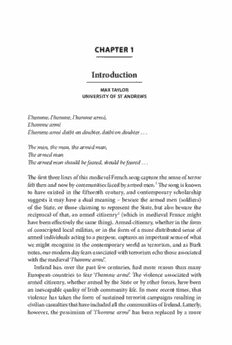
Dissident Irish Republicanism PDF
197 Pages·2011·2.214 MB·English
Most books are stored in the elastic cloud where traffic is expensive. For this reason, we have a limit on daily download.
Preview Dissident Irish Republicanism
Description:
““The IRA in one form or another is the oldest terrorist group the modern age has ever known, conducting campaigns for nearly a century. Has the Good Friday Agreement really ended the IRA’s career or just created another temporary peace? Max Taylor and P. M. Currie’s Dissident Irish Republicanism is an unusual fascinating very important and illuminating collection of essays which examines the strengths and weaknesses of all recent IRA offshoots dedicated to reviving the struggle to put the entire island under one government. The authors recognize that the issues raised here are relevant to understanding terrorist activity elsewhere and have begun a significant effort to see what the connections are, an effort which will help us all understand terrorism better wherever it occurs.” -David Rapoport, Founding and CoEditor, Journal of Terrorism and Political Violence.”““This timely volume breaks new ground in our understanding of the evolution of terrorist organizations. Political compromises that end conflicts often lead to splinter groups that reject them. We must understand these violent dissidents to prevent them from sabotaging fair peace processes. This book is essential reading for anyone trying to bring an end terrorist violence.” -Marc Sageman, Senior Fellow, Center on Terrorism, Counter-Terrorism, and Homeland Security, Foreign Policy Research Institute”““This book offers an extremely timely analysis of a key aspect of the new politics of Northern Ireland: the persistence of a ‘dissident’ republicanism that rejects the terms of the Good Friday Agreement of 1998 and insists on the legitimacy of continued violence. In contributions of uniformly high quality by leading scholars it brings together new research into the backgrounds, motivations and tactics of dissident activists and cool, objective and dispassionate analysis of the place of dissident republicanism within the new political conjuncture. It is essential reading for specialists and students of Northern Ireland and for comparativists in the field of peace and conflict studies.” -Joseph Ruane, University College Cork, Ireland.”
See more
The list of books you might like
Most books are stored in the elastic cloud where traffic is expensive. For this reason, we have a limit on daily download.
